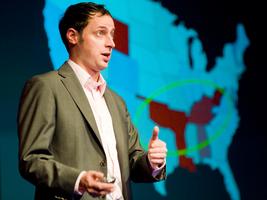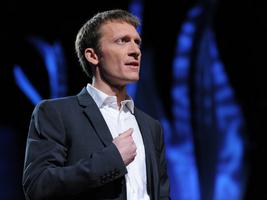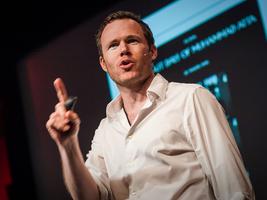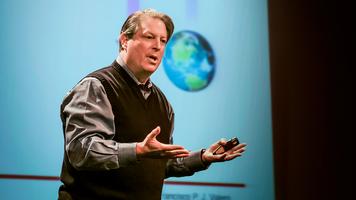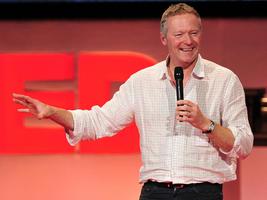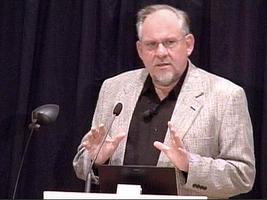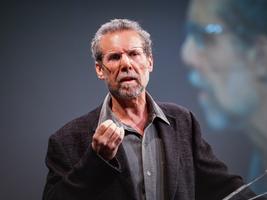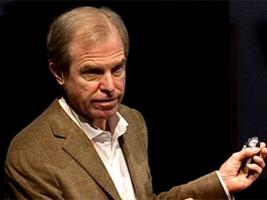Bill Clinton: My wish: Rebuilding Rwanda
Alex Gendler: How does impeachment work?

For most jobs, it's understood that you can be fired – whether for crime, incompetence, or just poor performance. But what if your job happens to be the most powerful position in the country – or the world? That's where impeachment comes in. But how does it work? Alex Gendler details the process of impeachment. [Directed by Mark Phillips, narrat...
Sophie Scott: Why we should take laughter more seriously

We think of laughter as merely a response to something funny. In this talk, cognitive neuroscientist Sophie Scott argues that it's a complex social behavior that signals a lot more than a successful joke. Using hilarious examples of laughter as used in foreign policy interactions, she demonstrates how the deployment of a well-placed guffaw is ke...
Jonathan Harris: The Web's secret stories
Nate Silver: Does racism affect how you vote?
Charles M. Blow: The case for a new Great Migration in the US
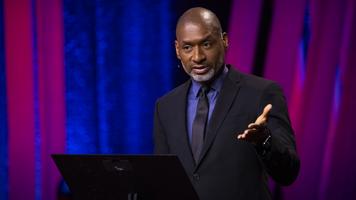
Social progress in the United States often seems to take two steps forward and one step back, with hard-fought civil rights wins countered by a seemingly inevitable backlash. In this spirited talk, writer Charles M. Blow makes the case that history, inverted, suggests a potential path forward. It's an unapologetically provocative proposal that B...
Damon Horowitz: Philosophy in prison
Alex Gendler: The Turing test: Can a computer pass for a human?
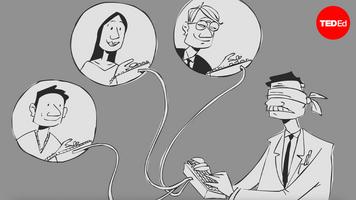
What is consciousness? Can an artificial machine really think? For many, these have been vital considerations for the future of artificial intelligence. But British computer scientist Alan Turing decided to disregard all these questions in favor of a much simpler one: Can a computer talk like a human? Alex Gendler describes the Turing test and d...
Gordon Brown: Global ethic vs. national interest
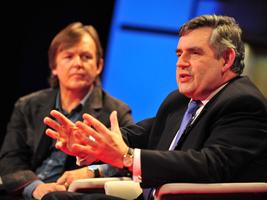
Can the interests of an individual nation be reconciled with humanity's greater good? Can a patriotic, nationally elected politician really give people in other countries equal consideration? Following his TEDTalk calling for a global ethic, UK Prime Minister Gordon Brown fields questions from TED Curator Chris Anderson.
Rives: The 4 a.m. mystery
Dorothy Roberts: The problem with race-based medicine
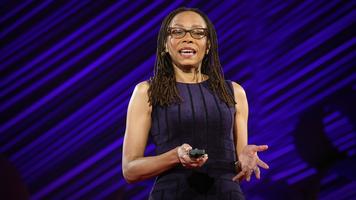
Social justice advocate and law scholar Dorothy Roberts has a precise and powerful message: Race-based medicine is bad medicine. Even today, many doctors still use race as a medical shortcut; they make important decisions about things like pain tolerance based on a patient's skin color instead of medical observation and measurement. In this sear...
Richard Thompson Ford: A tailored history of who wears what -- and why
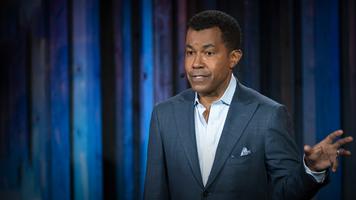
From puffy trousers to pantsuits and everything in between, law professor and author Richard Thompson Ford takes us on a fascinating tour through the history of fashion and the evolution of dress codes that still influence style today, tracing the real consequences people face for the way they dress. He offers an insightful and eye-opening expla...
Pamela Meyer: How to spot a liar

On any given day we're lied to from 10 to 200 times, and the clues to detect those lies can be subtle and counter-intuitive. Pamela Meyer, author of "Liespotting," shows the manners and "hotspots" used by those trained to recognize deception -- and she argues honesty is a value worth preserving. (Contains mature content)
Nisha Anand: The radical act of choosing common ground
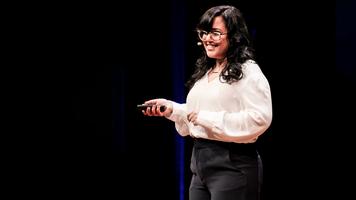
To achieve lasting change sometimes requires the hard, even radical, choice of partnering with people you'd least expect. Justice reform advocate Nisha Anand shares her story of working with her ideological opposite to make history and save lives -- and urges us all to widen our circles in order to make progress with purpose.
Al Gore: Averting the climate crisis
Rives: The Museum of Four in the Morning
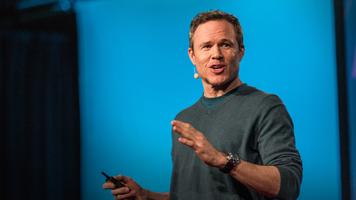
Beware: Rives has a contagious obsession with 4 a.m. At TED2007, the poet shared what was then a minor fixation with a time that kept popping up everywhere. After the talk, emails starting pouring in with an avalanche of hilarious references—from the cover of "Crochet Today!" magazine to the opening scene of "The Metamorphosis." A lyrical peek i...
Todd Humphreys: How to fool a GPS

Todd Humphreys forecasts the near-future of geolocation when millimeter-accurate GPS "dots" will enable you to find pin-point locations, index-search your physical possessions ... or to track people without their knowledge. And the response to the sinister side of this technology may have unintended consequences of its own.
Rory Bremner: A one-man world summit
R. Luke DuBois: Insightful human portraits made from data

Artist R. Luke DuBois makes unique portraits of presidents, cities, himself and even Britney Spears using data and personality. In this talk, he shares nine projects -- from maps of the country built using information taken from millions of dating profiles to a gun that fires a blank every time a shooting is reported in New Orleans. His point: t...
Larry Brilliant: The case for optimism
Eames Demetrios: The design genius of Charles + Ray Eames
Jake Barton: The museum of you
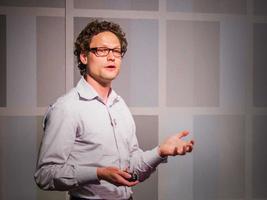
A third of the world watched live as the World Trade Center collapsed on September 11, 2001; a third more heard about it within 24 hours. (Do you remember where you were?) So exhibits at the soon-to-open 9/11 Memorial Museum will reflect the diversity of the world's experiences of that day. In a moving talk, designer Jake Barton gives a peek at ...
Samantha Power: A complicated hero in the war on dictatorship
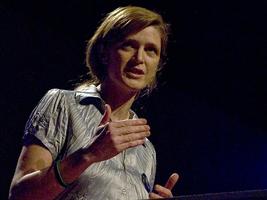
Would you negotiate with someone you knew to be evil, to save lives? Samantha Power tells a story of a complicated hero, Sergio Vieira de Mello. This UN diplomat walked a thin moral line, negotiating with the world's worst dictators to help their people survive crisis. It's a compelling story told with a fiery passion.
Chrystia Freeland: The rise of the new global super-rich
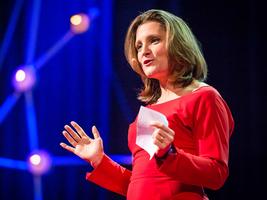
Technology is advancing in leaps and bounds -- and so is economic inequality, says writer Chrystia Freeland. In an impassioned talk, she charts the rise of a new class of plutocrats (those who are extremely powerful because they are extremely wealthy), and suggests that globalization and new technology are actually fueling, rather than closing, ...
Anne-Marie Slaughter: Can we all "have it all"?
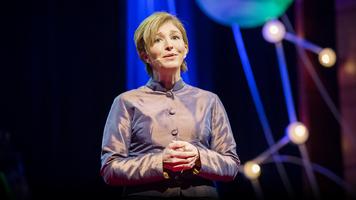
Public policy expert Anne-Marie Slaughter made waves with her 2012 article, "Why women still can't have it all." But really, is this only a question for women? Here Slaughter expands her ideas and explains why shifts in work culture, public policy and social mores can lead to more equality -- for men, women, all of us.
Daniel Goleman: Why aren't we more compassionate?
Mona Chalabi: 3 ways to spot a bad statistic
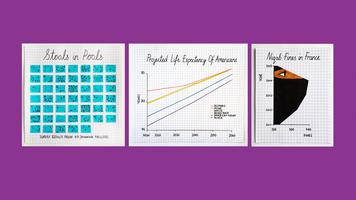
Sometimes it's hard to know what statistics are worthy of trust. But we shouldn't count out stats altogether ... instead, we should learn to look behind them. In this delightful, hilarious talk, data journalist Mona Chalabi shares handy tips to help question, interpret and truly understand what the numbers are saying.
Nicholas Negroponte: One Laptop per Child, two years on


